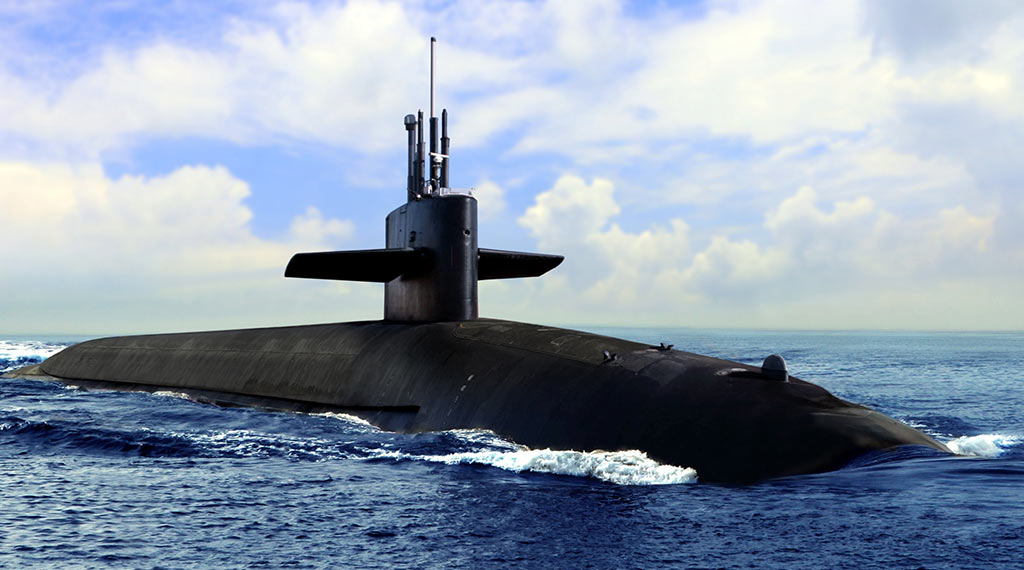
I try to always call balls and strike fairly with the Biden team. Although creating or being entrapped in one mess after another, usually enabled by their froward and wanton ideology separated from common sense, logic, and reality, the Biden team’s involvement in the Australian, United Kingdom, and United States (AUKUS) Trilateral Security Pact is a brilliant move and a solid base hit.
Announced with almost no notice on Sept. 15, 2021, the pact is a game-changing agreement to significantly increase the size and the capability of the Royal Australian Navy (RAN) by replacing the six aging diesel-powered submarines of the RAN with at least eight, much larger nuclear-powered submarines. On April 5, 2022, the announcement was updated to also include cyber, hypersonic missiles, and other key topics. The timeline of the original announcement was to deliver a plan for this ambitious effort within 18 months.
The American leader of the three-way pact is James Miller, formerly one of the most senior Obama defense officials. I’ve worked with and in Jim Miller’s organization and have a positive impression of his ability to lead this effort, likely the most complex defense project in Australian history.
Growing the Australian Navy, the Return of the Royal Navy to the Pacific
Australian Defence (spelled their way out of courtesy) strategy papers going back to the early part of this century increasingly hinted at a need for self-sustainment in their neighborhood against a growing Chinese menace.
The interpretation was that they were not departing from close cooperation with the United Kingdom or the United States, but a 2009 paper gave the impression that Australia felt that the United States was distracted, and the United Kingdom was still living a West of the Suez, strategic outlook. A major step forward for the Australians was the decision to sign a contract with France in 2016 for French-designed, but mostly Australian-built submarines. This, after a three-way competition between Germany, Japan, and France. I personally think the Japanese submarines were the best value, but Australia signed with France and, almost immediately, the program went nowhere.
Here’s where I will call a strike on the Biden team—the AUKUS arrangement was a strategic move that also rescued Australia from the morbid French arrangement. Under President Donald Trump, though, who I will suggest is where the original AUKUS idea originally germinated, France would have never been so shamefully treated with the humiliation of a no-notice cancellation of their contract with Australia. Trump would have made this AUKUS-F and made it a win-win for all.
Part of this AUKUS arrangement is the reversal of Britain’s policy of withdrawal from East of the Suez—the original evacuation debacle where the United Kingdom left many bases and allies on short notice in 1968. Those days are gone, and the United Kingdom, like the United States under Trump (and President Joe Biden under the AUKUS arrangement), is back. Related to this entire strategic move is Singapore, which always reminds visitors to the Changi Naval Base that they have a large pier that’s perfect for large aircraft carriers (an obvious hint to the United States, UK, Australia, and Japan that have large flat top naval vessels).
With AUKUS, the UK is back, the United States shares coveted nuclear technology and commits even more to regional partnerships, and Australia establishes a pathway to a very strong increase in capabilities and capacities.
Adding in Japan? What About Others?
A short time after the original announcement, the AUKUS agreement significantly expanded in scope. Suddenly, Prime Minister Fumio Kishida of Japan and opposition are now openly discussing nuclear submarines for Japan. This is extraordinary. The topic of any war fighting capability and nuclear propulsion by the Japanese Self Defense Forces (they aren’t called Military Forces due to the post-war constitution) has been a forbidden area of discussion. But times are changing with Chinese Communist Party (CCP) aggressive adventurism.
I’m quite sure that these references by Kishida and others didn’t come out of thin air. It’s very possible that Jim Miller and team have had inter-action and raised the topic. Including the Japanese is very logical, and Kurt Campbell has discussed further expansion of regional agreements in the last few days. These could include Japan, India, and other nations. Campbell was the architect of the original “Pacific Pivot” during the Obama years. A brilliant idea, but very weakly executed—not a strike, but a foul tip.
AUKUS and possible further expansions are a solid double for the Biden team. And it’s a poke at the CCP in an area where they are very weak. Even with the massive Belt and Road influence operations, the CCP only creates vassal and tributary states, not functional strategic partners. Let’s hope that AUKUS accelerates and brings in other key partners to further deter the nefarious intent of the CCP.
- Taiwan mobilizes 400,000 to bolster civil defense - November 1, 2024
- A way forward on Taiwan? - September 28, 2024
- US should speed up bolstering its Arctic strategy to counter China’s ambitions - September 16, 2024
